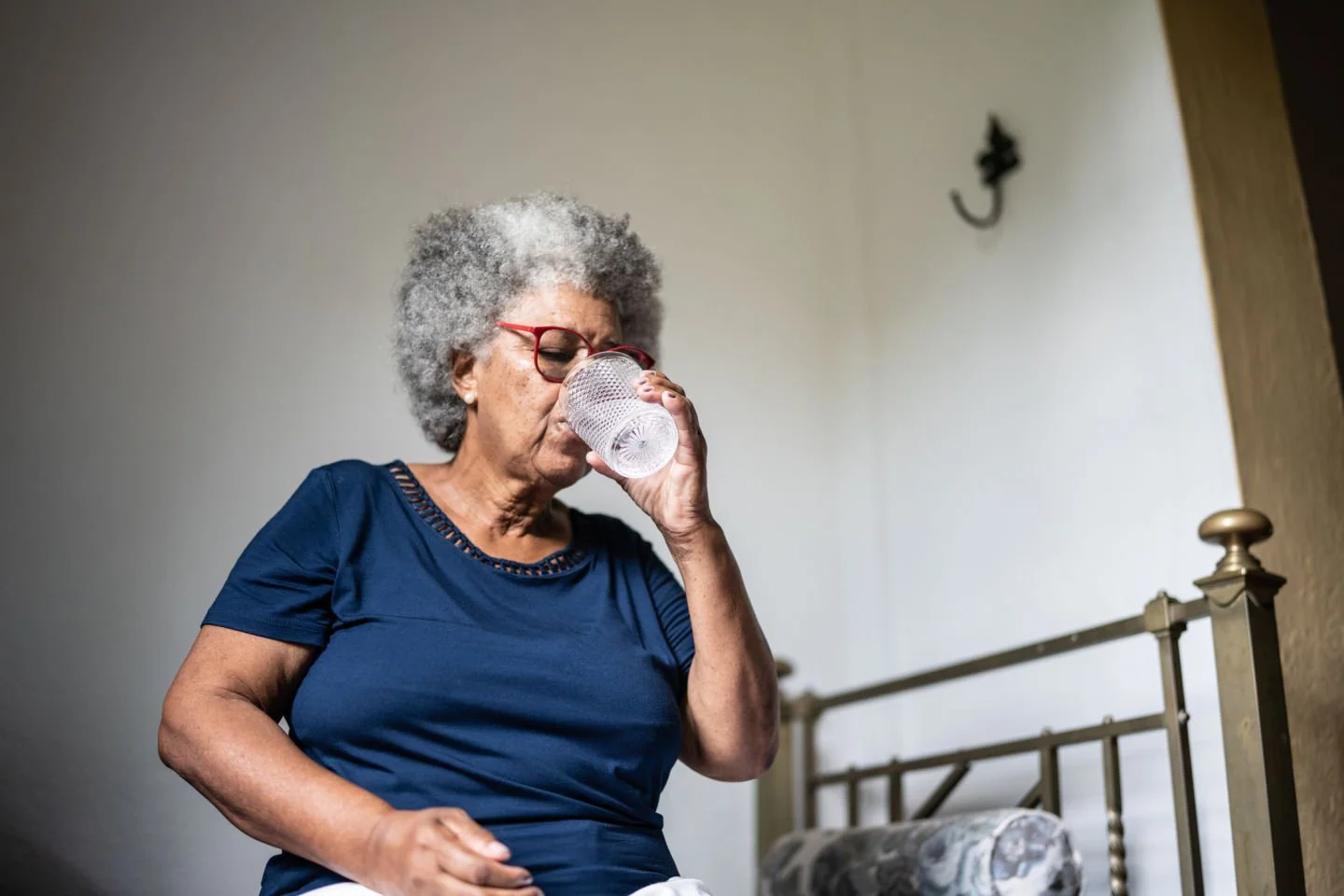Advice for heatwaves
As the summer months approach, it’s important for us to be prepared to communicate effectively with the older people in our community about staying safe and well in very hot weather.
If you are a Link volunteer who is worried about a Link Friend, don’t hesitate to:
Get in touch with us at the office
Call their emergency contact
Call their GP or 111
Public Health England issue alerts when extreme weather is approaching and the quicker we can get the right messages out, the more likely people will not suffer from the consequences of heat. Sadly, death rates rise soon after temperature increases, with many deaths occurring in the first one to two days, so swift action is needed when a Level 2 alert comes to you (Level 2 alert = 60% risk of heatwave in the next 2–3 days). The triggering threshold temperatures for South East England are 310C by day and 160C by night.
In total, an estimated 2,556 heat-related deaths occurred in summer 2020 across all ages in England. This is the highest estimate of heat-related deaths since the introduction of the Heatwave Plan for England in 2004. This equates to an estimated 72 heat-related deaths in 2020 that could have been prevented in Berkshire. We also know the impact of heat on mortality is not reflected in admissions, supporting the idea that many heat-related deaths occur before people come to medical attention.
Those particularly vulnerable are those who are less able to adapt to hot weather and rely on others to help them to stay cool and well during hot weather. This group includes babies and young children, having a disability, being bed-bound, alcohol/drug misuse, having dementia, people who are already ill and dehydrated (for example, from gastroenteritis).
Here’s a short YouTube clip to help us to minimise the harmful effects of hot weather. See also this helpful NHS advice.
Key advice from Public Health England:
Check on others
Check on older people or sick neighbours, family or friends every day during hot weather.
Stay hydrated
Stay hydrated - drink plenty of fluids and avoid excess alcohol. If you need to travel, ensure you take water with you.
Physical activity
Avoid extreme physical exertion. If you can’t avoid strenuous outdoor activity, such as sport, DIY or gardening, keep it for cooler parts of the day – for example, in the early morning or evening.
Keep the home cool
Keeping your living space cool is especially important for those who need to stay at home this summer.
Shade or cover windows exposed to direct sunlight and keep windows that are exposed to the sun closed during the day. External shutters or shades are very effective, while internal blinds or curtains are less effective. Care should be taken with metal blinds and dark curtains, as these can absorb heat.
If possible and safe, open windows at night if it feels cooler outside.
Turn off non-essential lights and electrical equipment – they generate heat.
During the hottest periods find the coolest part of your home or garden/outside or local green space to sit in.
On car journeys
Ensure that babies, children or older people are not left alone in parked cars, which can quickly overheat.
Look out for the signs of heat-related harm
If you feel dizzy, weak or have intense thirst and headache, move to a cool place as soon as possible. Drink some water or diluted fruit juice to rehydrate, avoid excess alcohol.
If you have painful muscular spasms (particularly in the legs, arms or abdomen, for example after sustained exercise during very hot weather), rest immediately in a cool place and drink electrolyte drinks. Most people should start to recover within 30 mins and if not, they should seek medical help. Call 111 if you feel unusual symptoms, or if symptoms persist.
Call 999 if a person develops any signs of heatstroke as this is a medical emergency. Further information on heat stroke and heat-related illness are available here.
Enjoy the water safely
During warm weather going for a swim can provide much-welcomed relief.
Take care and follow local safety advice, if you are going into the water to cool down.
Sunburn
Try to keep out of the sun between 11 am and 3 pm, when UV radiation is strongest.
If you have to go out in the heat, wear UV sunglasses, preferably wraparound, to reduce UV exposure to the eyes, walk in the shade, apply sunscreen of at least SPF15 with UVA protection and wear a hat. Wear light, loose-fitting cotton clothes. This should reduce the risk of sunburn.


